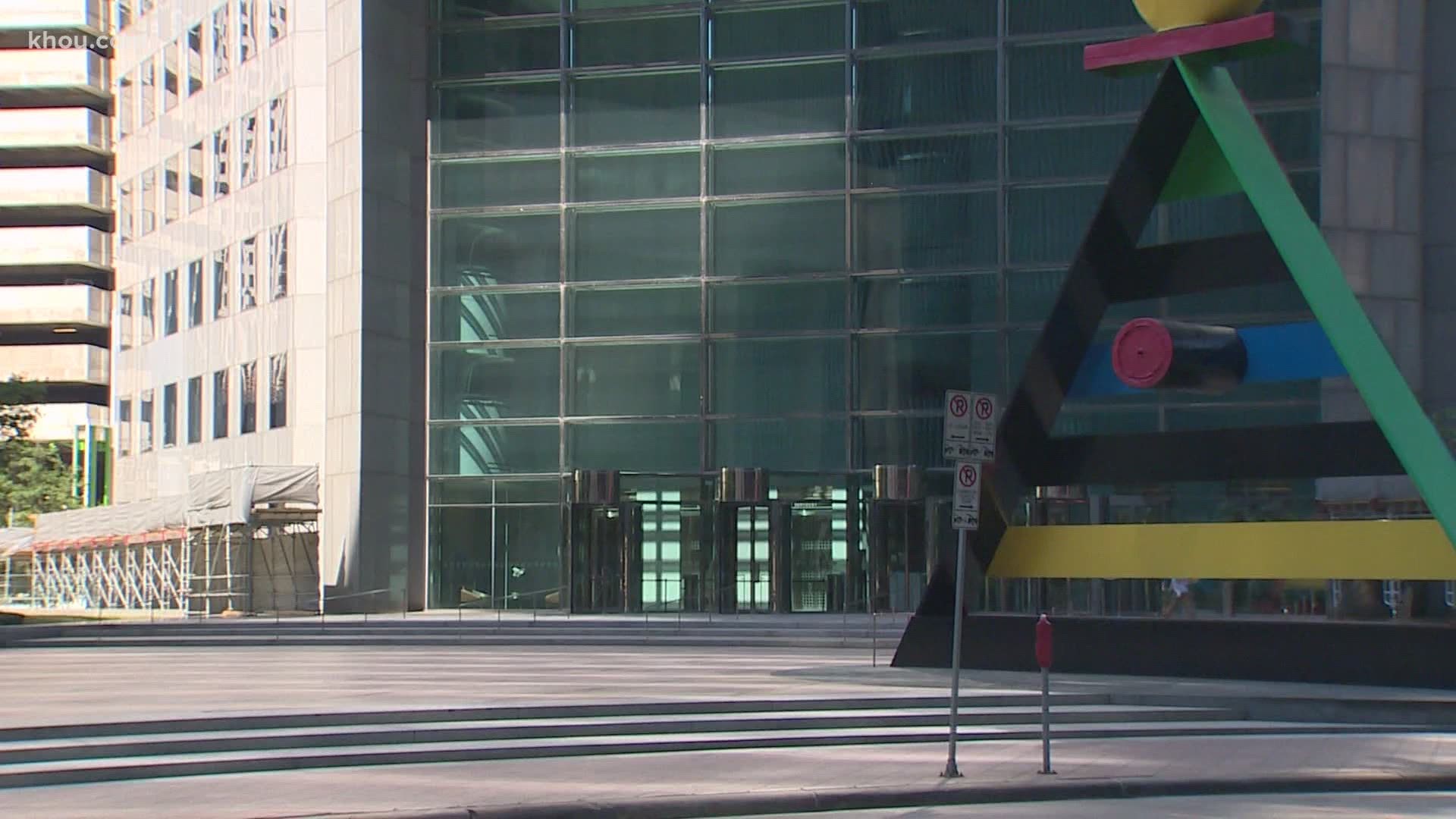HOUSTON — As businesses in Texas reopen and employees return to the office, there will be changes made to keep everyone safe.
Bob Harvey, President and CEO of Greater Houston Partnership, knows there are plenty of questions.
”Employees want to hear that they are going to be provided a safe working environment," Harvey said.
Governor Greg Abbott’s executive order says office buildings can reopen with 25 percent of their employees beginning Monday May 18 as long as they maintain social distancing.
At architecture and design firms like Corgan, they are working to address clients changing needs as businesses reopen.
"It's an amazing time to be in the design industry," said David Euscher, Vice President and Interiors Studio Director for Corgan in Houston. "We promise to protect the health, safety and welfare of our clients and of the public, and there's been no time like now when that's been even more important."
Euscher said they are thinking beyond the office, using lessons learned from their work on everything from airports and elementary schools to hospitals.
“We are definitely learning from our healthcare practice, what can we do in terms of infection control," Euscher said.
He said we could see things like touchless entry and one-way traffic inside buildings to create a safer work flow.
“Rather than add to a space, try to start by subtraction, try to get space in between people. What can we do with the assets they already have?" he said.
The Greater Houston Partnership also said employees should also expect to check their temperature either at home or once they get to the office.
“We need to make sure we are not creating that second possible peak and we have to watch that frankly daily," Harvey said.
As for testing employees for coronavirus on site, that's not in the governor's order. Harvey said testing every employee in Houston would simply overwhelm the system.
To read more on The Greater Houston Partnership's Houston Work Safe Program, click here.
Coronavirus symptoms
The symptoms of coronavirus can be similar to the flu or a bad cold. Symptoms include a fever, cough and shortness of breath, according to the Centers for Disease Control. Some patients also have nausea, body aches, headaches and stomach issues. Losing your sense of taste and/or smell can also be an early warning sign.
Most healthy people will have mild symptoms. A study of more than 72,000 patients by the Centers for Disease Control in China showed 80 percent of the cases there were mild.
But infections can cause pneumonia, severe acute respiratory syndrome, kidney failure and even death, according to the World Health Organization. Older people with underlying health conditions are most at risk for becoming seriously ill. However, U.S. experts are seeing a significant number of younger people being hospitalized, including some in ICU.
The CDC believes symptoms may appear anywhere from two to 14 days after being exposed.
Human coronaviruses are usually spread through...
- The air by coughing or sneezing
- Close personal contact, such as touching or shaking hands
- Touching an object or surface with the virus on it, then touching your mouth, nose or eyes before washing your hands.
Help stop the spread of coronavirus
- Stay home when you are sick.
- Eat and sleep separately from your family members
- Use different utensils and dishes
- Cover your cough or sneeze with your arm, not your hand.
- If you use a tissue, throw it in the trash.
- Follow social distancing
Lower your risk
- Wash your hands often with soap and water for at least 20 seconds. If soap and water are not available, use an alcohol-based hand sanitizer.
- Avoid touching your eyes, nose, and mouth with unwashed hands.
- Avoid close contact with people who are sick.
- Clean and disinfect frequently touched objects and surfaces.
- If you are 60 or over and have an underlying health condition such as cardiovascular disease, diabetes or respiratory illnesses like asthma or COPD, the World Health Organization advises you to try to avoid crowds or places where you might interact with people who are sick.
Get complete coverage of the coronavirus by texting 'FACTS' to 713-526-1111.

